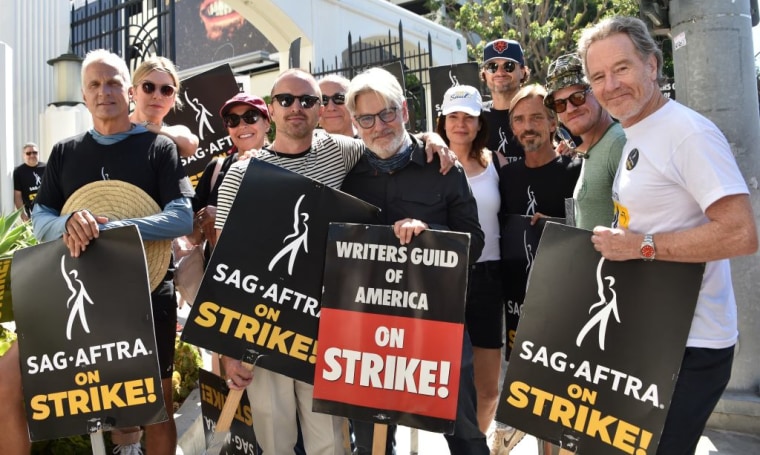 Photo by CHRIS DELMAS/AFP via Getty Images
Photo by CHRIS DELMAS/AFP via Getty Images
The Hollywood writers strike has effectively ended after WGA union members voted to authorize its members to return to work on Wednesday. The strike began in May and lasted 148 days, just a few days shy of the record 1988 strike when the WGA lasted 154 days.
A vote held on Tuesday followed the tentative agreement reached on Sunday between union negotiators and Hollywood’s studios and streaming services.
“The WGAW Board and WGAE Council also voted to lift the restraining order and end the strike as of 12:01 am PT/3:01 am ET on Wednesday, September 27th. This allows writers to return to work during the ratification process, but does not affect the membership’s right to make a final determination on contract approval,” the WGA wrote online.
As of 8.01 am BST today the #WGAStrike has ended
— The Writers' Guild (@TheWritersGuild) September 27, 2023
Read our statement, including advice to our members and quote from our Chair @WorksWithWords https://t.co/KJm4gXxlsw#WGAStrong
Production on TV and movies has found to a halt this summer as the WGA was joined by SAG-AFTRA, the union that represents actors, also going on strike in a row over pay in the new streaming economy. Both writers and actors outlined protections against the use of artificial intelligence in their work, too.
CNN reports that te writers' newly agreed contract will expire in 2026 and includes an immediate 5% pay increase, alongside improved benefits, longer duration of employment terms, and guarantees of compensation from streaming companies to make up for the loss of residuals (writers making money on re-runs of old shows). Writer's pay will increase another 4% in May 2024 and then another 3.5% in May 2025.
Services such as Netflix, Disney+ and Max have pledged to increase transparency about the viewing data on movies and series, something they have traditionally avoided doing in a public capacity.
The use of AI has been central to both the WGA strike and SAG-AFTRA members, who remain on strike. Both groups were seeking assurance over their role in a future where artificial intelligence could be used to create scripts and voice characters on screen. The WGA agreement notes that "AI can’t write or rewrite literary material," with an additional requirement that AI-generated materials must be disclosed to writers.